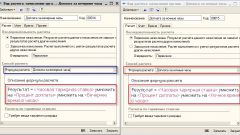Working time
The labour code gives a clear definition of working time and provides for different variants. Working hours is exactly the time when the worker directly works, it performs those actions which are entrusted to him by the employment contract and job responsibilities. At this time does not include any breaks. In most cases, the duration of working time is set directly by the employer and in accordance with the law, comprising not more than forty hours a week. These forty working hours distributed throughout the week in different ways, depending on the so-called working hours. This mode is established by labor agreement or contract.
The main adopted for use mode - normal working hours. In her forty hours a week divided into five work days of eight working hours. Other variants are possible of the distribution of hours of work. For example, shift working time is allocated so that the result is not more than the allowable weekly limit.
The law allows as increased duration and shortened, work in a flexible way.
Short duration work is the place for special categories of workers. It's minors, disabled people, working in harmful or dangerous conditions.
Work in a flexible regime or in the regime of flexible working time - in this case, the beginning of the work, its end or the total duration of the shift can be changed by the mutual agreement of the employee and the employer. At the same time, a set number of hours per week the employee still needs to work out.
The duration of working time can not only decrease but also increase.
Long working hours
Long working hours, according to the Labor code, is one of the modes of working time and represents a form of work in which workers, if needed, may be required to work beyond normal working hours. Such engagement can only be sporadic and in excess of such engagement work is not paid, and, most of all, kompensiruet an additional vacation.
If the employment contract for the employee is set to long working hours, it does not mean that the employee can bring to work all the time. In the 101st article of the Labour code focuses only on the episodic involvement, that is, such involvement in any case must not be permanent or even a clear periodic nature.
For employees with irregular working day also there are internal rules of the organization, which is determined by the specific time for beginning and completion of work, this period of time and is for all without an exception of employees of the organization normal work.
Other work performed in excess of
There are other ways of attracting employees to work in excess of eight hours established by law.
One of them is to work at night. In the presence of production necessary to accomplish such work possible. However, the total duration of work must not exceed in this forty hours a week. This may be achieved by providing additional rest time equal to the duration of the work. when such conditions are not to form extra hours.
It should be borne in mind that the night work should be reduced to one hour.
Overtime - so in everyday life are called to work beyond normal working hours, which is performed at the behest of an organization or entrepreneur, i.e. the employer.
All cases in which the laying of such work to the employee, clearly stated in the law. To change or add to the list the employer can not do independently. But, if there is a written consent of the employee to work overtime, attracting to it possible with subsequent payment in a larger size.




